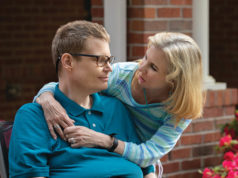Local officials and businesspeople provide insight into our economic recovery
Edited By Cory Sekine-Pettite
Many of us pay little attention to the ebbs and flows of the U.S. economy. Frankly, it can be difficult to understand, and even more difficult to predict. These days, however, you may be paying closer attention since the COVID-19 pandemic exacerbated an economic decline at a pace that never has been recorded. Thus, you may have read that many economists are hopeful as they see a recovery happening sooner than projected. Consumer spending is up. The housing industry remains strong. And manufacturing activity is on the upswing. So that’s nationally, but what about locally?
As the State of Georgia emerges from the pandemic lockdown and businesses here try to return to some semblance of normal, residents and business owners will be looking for guidance on how the local economy is improving and what our economic future looks like. Therefore, Cobb In Focus reached out to leaders in our community whom we thought could provide informed perspectives as our economy reopens.
 Smyrna Mayor Derek Norton, said he is seeing his city’s resilience and generosity shine through during these tough economic times, and he noted that since the city’s finances are well-managed, Smyrna will endure the crisis well.
Smyrna Mayor Derek Norton, said he is seeing his city’s resilience and generosity shine through during these tough economic times, and he noted that since the city’s finances are well-managed, Smyrna will endure the crisis well.
“I’m always optimistic, but I also realize there’s no script for this; there’s no crystal ball. We just went through our budget process for the next fiscal year, and it’s truthfully a little bit of a guessing game. Nobody knows what’s ahead of us. …So we budgeted very conservatively, with 20- to 25-percent cuts. …Thankfully, we had a lot of years of fiscal responsibility and good stewardship of taxpayer money, so we’re in a good position to deal with a time like this. …I’m hopeful. Good things come out of bad situations, and I think one of the good things that has come to the forefront here in this city is the generous spirit this community has.”
Mayor Norton is referring to Support Smyrna, a program launched with the assistance of the Smyrna Public Safety Foundation and other civic organizations to provide food assistance to those in need during the pandemic. Residents have been contributing to a fund that provides grocery store gift cards to those in need. As of press time, the mayor said the community has donated nearly $200,000. Learn how you can assist at smyrnaga.gov.
 Daniel M. Cummings, economic development manager, Department of Development Services, City of Marietta, said his city is fortunate to have a diverse economy, which somewhat diminished the overall economic impact the virus has forced upon other local economies. However, he is cautious about overstating any potential recovery predictions.
Daniel M. Cummings, economic development manager, Department of Development Services, City of Marietta, said his city is fortunate to have a diverse economy, which somewhat diminished the overall economic impact the virus has forced upon other local economies. However, he is cautious about overstating any potential recovery predictions.
“What we saw during COVID-19 was a number of new projects hitting pause with many adopting a “wait and see” mindset. Despite this, Marietta has continued to have strong activity. Our permitting has not seen a decline, with residential being particularly strong. We have had a number of recent rezonings, and our staff also has been working with a number of project inquiries looking for space across different sectors. These are all positive indicators that we hope to see continue to move forward. As our retail and restaurants have reopened, there has been a lot of enthusiasm from the community which has been great to see. The Marietta business community has a lot of people rooting for its success. Our team has been working with our partners to connect our businesses to the available resources and provide support to help get them back on track.”
 Holly Quinlan, president/CEO of Cobb Travel & Tourism, said recovery will not happen overnight for tourism in Cobb, but she’s optimistic that through new programs and an emphasis on health and safety, the tourism economy will bounce back.
Holly Quinlan, president/CEO of Cobb Travel & Tourism, said recovery will not happen overnight for tourism in Cobb, but she’s optimistic that through new programs and an emphasis on health and safety, the tourism economy will bounce back.
“The industry of tourism has been severely impacted by the COVID-19 pandemic. Tourism is an economic engine and the number-one industry in Cobb. The return of tourism will be critical to our community’s economic recovery.
“Cobb is already seeing some attractions reopen, restaurants offering more dining options, and youth sports being played. These are all positive signs, but we still have a long path ahead to restart and re-energize all of Cobb’s tourism entities.
“As Cobb Travel & Tourism (CT&T) implements a recovery strategy for Cobb’s tourism community, we will focus on how to communicate safety for residents and visitors, while also positioning our hotels, attractions, restaurants, and venues for success. Safety has always been a priority, but now it will be even more important to clearly communicate the industry’s efforts. Additionally, CT&T will be intentional about packaging tourism experiences for all comfort levels, offering options throughout the county.
“Recovery is not an overnight process for any industry, especially tourism, but it will happen as we all work together to provide the best experience for residents and visitors alike.”
 Sharon Mason, president/CEO, Cobb Chamber, said the Chamber already is seeing signs of recovery in Cobb and its own recovery taskforce has been focused solely on helping local businesses find assistance to keep their people employed.
Sharon Mason, president/CEO, Cobb Chamber, said the Chamber already is seeing signs of recovery in Cobb and its own recovery taskforce has been focused solely on helping local businesses find assistance to keep their people employed.
“The COVID-19 pandemic has been extremely difficult for so many businesses and individuals, but we are seeing signs of recovery. The Cobb Chamber has been focused on working with all of our government and community partners to stimulate economic recovery through providing resources, advocacy, and support throughout this crisis and we’ll continue to do that. So far, more than 10,000 Cobb-based companies across many industries received PPP (Payroll Protection Program) through the CARES Act and this has helped these companies to get back to business.
“With the small business grant opportunity through Cobb County Government and SelectCobb, we will be able to help many more small businesses in Cobb weather this storm and retain their workforce. Our economic recovery taskforce has been focused on seeking more grant opportunities as well as helping businesses reopen safely, and many more businesses have been opening more recently. Also, with Georgia as the number-one state to do business, we are projected to recover faster than other states. In fact, our SelectCobb team has seen a significant increase in companies considering relocating to Cobb from another state since the pandemic began. With new companies bringing jobs and investment to Cobb, we will recover much faster.”
 Roger Tutterow, KSU professor of economics and director of the Econometric Center in KSU’s Coles College of Business, says that forecasting our economic outlook with the uncertainty of Covid-19 can be challenging, but offers this insight.
Roger Tutterow, KSU professor of economics and director of the Econometric Center in KSU’s Coles College of Business, says that forecasting our economic outlook with the uncertainty of Covid-19 can be challenging, but offers this insight.
“It is clear that both output and employment numbers were decimated in the second quarter. The general consensus is that the economy should be forming a bottom. However, the strength of the recovery is contingent on infection rates falling, government restrictions moderating and increased consumer confidence. The risk of a second round of infections is still a real possibility. And it is still uncertain how businesses behave as fiscal stimulus fades.”
 Trey Sanders, regional president, Brasfield & Gorrie, said lessons learned in the economic crisis of 2008-09 helped the construction firm better weather the current crisis.
Trey Sanders, regional president, Brasfield & Gorrie, said lessons learned in the economic crisis of 2008-09 helped the construction firm better weather the current crisis.
“The balance of 2020 can be summed up as a time of proceeding with caution. Because construction was deemed an essential business, we are fortunate that our work continued, which allowed us to keep our people busy, particularly with the large number of major projects we already had underway. Currently, we are still seeing large commercial office and hospitality projects proceed, despite the short-term changes in behavior that have challenged those sectors. The current climate feels markedly different than 2008 to 2009, and lessons that were learned in that time have put many in a better position financially to weather the current challenges than the recession a decade ago.”
 Brian Albrecht, president/CEO, Credit Union of Georgia, said his industry doesn’t expect to see a impact from the virus until later this year, but that his company is well positioned to endure.
Brian Albrecht, president/CEO, Credit Union of Georgia, said his industry doesn’t expect to see a impact from the virus until later this year, but that his company is well positioned to endure.
“We, like most individuals and businesses are cautiously optimistic about the reopening of our economy. Every day on the way to work, I see more and more cars on the road, which is a good sign. Credit Unions are considered an essential business, and while the way we have engaged with our members has changed, we never closed. We have been here, eagerly serving our local communities during this uncertain time and like most Credit Unions, we offered payment deferrals and other assistance to our members. Given the steps we have taken to support our members and communities, we do not expect to experience the adverse financial impact of the coronavirus until later in 2020.
“While we are well positioned to weather the storm, we are currently anticipating that it will be early 2021 before we have a true idea of the financial impact, and we are expecting mid-year 2021 to be a positive turning point. We hope we are wrong and the economy is in much better shape than the economists are predicting by year-end, but I think this recovery is going to take some time. The Credit Union Industry is healthy, but with any recession there will be some challenges. The pandemic has led to lower interest rates and we are likely to remain in this low rate environment for a relatively long period of time, which will lead to lower margins. Lower margins coupled with the potential for increased loan losses and non-performing assets will lead to a few Credit Unions being stressed. However, Credit Union of Georgia and the Credit Union Industry are both on solid financial footing and we look forward to seeing our members face to face once again.”
 Cynthia T. Reichard, executive vice president, Arylessence, said that her company, which designs fragrances and flavors for many consumer brands, has been able to keep its staff employed. But she knows that many smaller companies have been less fortunate. However, with continued local, state, and federal support, Reichard sees recovery on the horizon for Cobb County and beyond.
Cynthia T. Reichard, executive vice president, Arylessence, said that her company, which designs fragrances and flavors for many consumer brands, has been able to keep its staff employed. But she knows that many smaller companies have been less fortunate. However, with continued local, state, and federal support, Reichard sees recovery on the horizon for Cobb County and beyond.
“Arylessence is proud to have kept our employees not only safe and protected, but productive and employed during this difficult time. We recognize the challenges businesses have faced varies from industry to industry and we empathize with the small businesses and sectors in our community that have taken a harder hit during the pandemic. We believe with an attentive focus on CDC safety guidelines, diligence with heightened workplace hygiene practices, and with a united spirit, our county and state will begin to experience positive economic improvements in the near term. The strategic support at the state, local, and federal levels currently offered to help businesses get back on their feet definitely gives us an edge in comparison to global competitors, and we have additional confidence that locally Cobb County will see an improving business environment — particularly as we move further into 2021. With that said, we believe it will take several years to get back to pre-pandemic levels and a continued focus on initiatives supporting business is critical to this recovery.”
 Peter Heintzelman, president/CEO of Cobb EMC, believes 2021 will bring with it a strong economic recovery.
Peter Heintzelman, president/CEO of Cobb EMC, believes 2021 will bring with it a strong economic recovery.
“While uncertainty is the economic word of the balance of 2020, I am mildly optimistic of a strongly trending recovery. Despite the record length of the most recent economic expansion, most economists prior to COVID-19 could find few structural faults causing an impending recession, and the smart ones pointed to an outside event as the main risk (i.e. trade war) and they were right for reasons most did not foresee. Many of those fundamentals such as housing and spending are showing resiliency, interest rates are lower, and I believe we can get people back to work more quickly than in an economically-caused recession. We will be challenged throughout 2020 with uncertainty and perhaps a fall COVID-19 second wave, but I believe 2021 will be a strong recovery year.”
 Tracy Rathbone Styf, executive director, Town Center CID, see the value in how corporations have adapted to a remote workforce.
Tracy Rathbone Styf, executive director, Town Center CID, see the value in how corporations have adapted to a remote workforce.
“We’ve learned from remote working how to be flexible and creative, not just in our communication style, but in project coordination. We collaborate with several organizations to drive change in our communities and now we know that our progress doesn’t have to be slowed down by physical limitations. I think as the economy opens back up, we will see the application of remote work concepts help us develop more efficient, safer, and enjoyable environments. Additionally, infrastructure projects have been very efficient because of fewer vehicles on the roads. Now that people are seeing the benefits of flexible meetings and work-from-home lifestyles, it’s possible that construction will be able to complete projects quicker in the future.”




